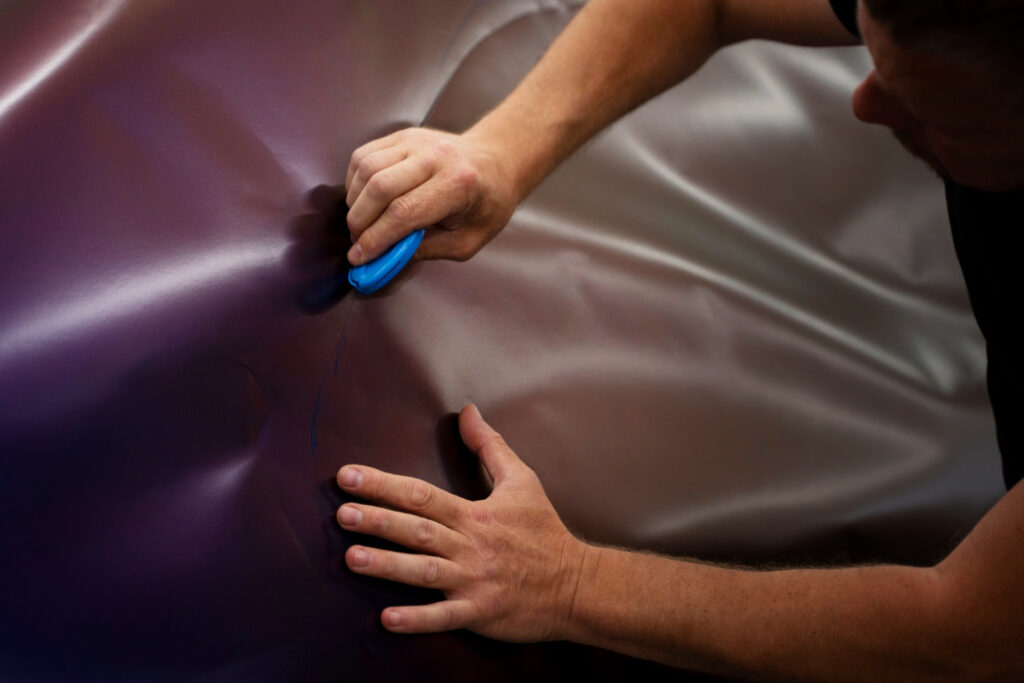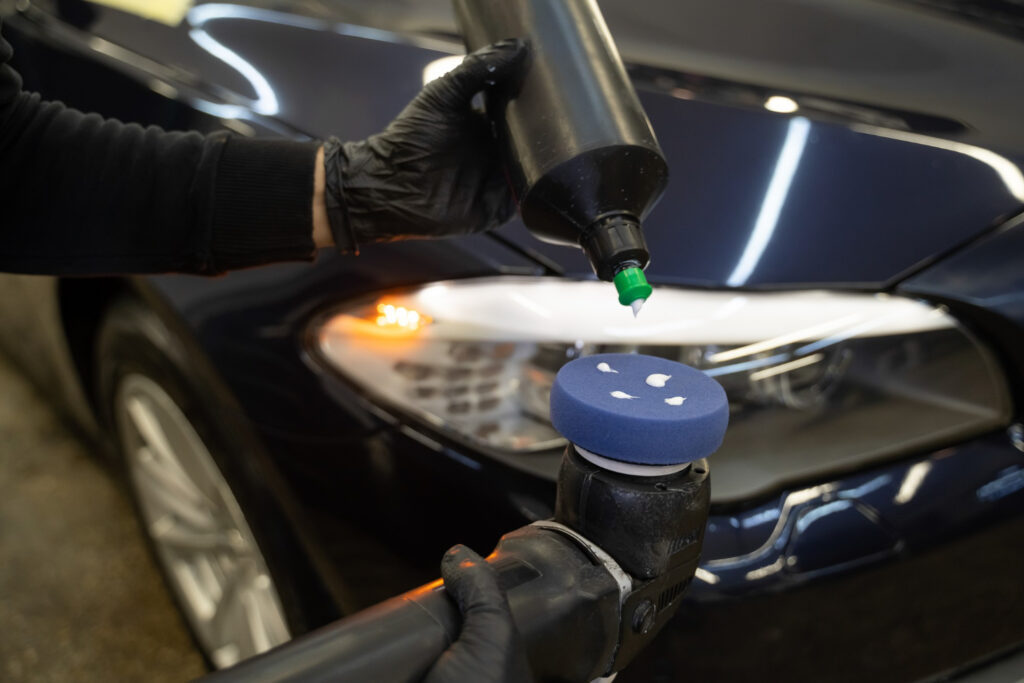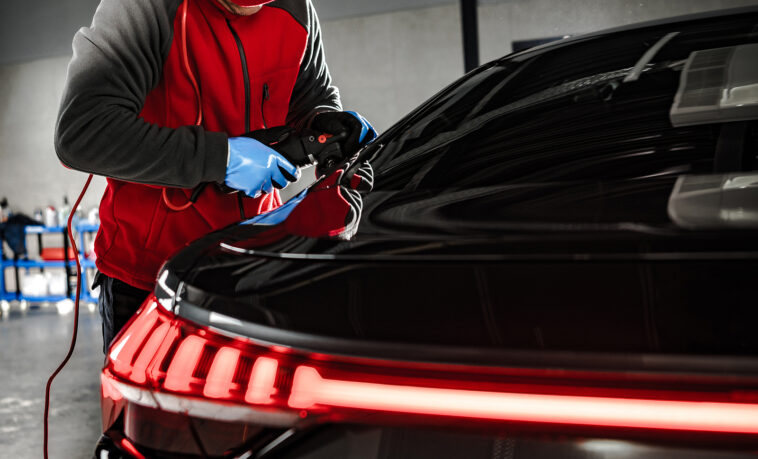Best DIY Ceramic Coating for Cars
When I think about taking care of my car and making it look its best, ceramic coatings have truly revolutionized the way we protect and enhance our vehicles in the automotive world. They offer an incredible level of defense against all sorts of environmental challenges, from pesky contaminants to those harsh UV rays, not to mention the annoying minor scratches that can pop up from time to time. What's even more appealing is that they leave your car with this mesmerizing, water-repellent finish that's simply stunning.
Now, while you can easily find professionals who offer ceramic coating services, I'm one of those car enthusiasts who find immense satisfaction in the cost-effective and fulfilling process of applying a DIY ceramic coating. In this guide, I'll walk you through some of the best DIY ceramic coatings for cars, how to go about applying them, and all the fantastic perks they bring to your beloved vehicle. So, let's dive in and get your car looking and feeling its absolute best!
Why Choose DIY Ceramic Coating for Your Car?
When considering whether to opt for a DIY ceramic coating for your vehicle, it's essential to delve into the numerous advantages this approach offers:
Cost Savings
Professional ceramic coating services can be quite pricey. By choosing the DIY route, you can attain similar, if not identical, results while significantly reducing your expenses. This makes DIY ceramic coating an appealing choice for car owners who are budget-conscious or looking to get the most value out of their investment.
Satisfaction of Personalization
Many car enthusiasts derive immense satisfaction from actively participating in the care and maintenance of their vehicles. Applying a DIY ceramic coating allows you to establish a more profound connection with your car. It's not just about protection; it's a hands-on way to enhance your car's appearance and maintain it in top condition. The sense of accomplishment that comes from completing this task yourself is truly rewarding.
Flexibility and Convenience
DIY ceramic coatings provide you with the flexibility to work on your car's coating at your own pace. This level of control and convenience is particularly beneficial for individuals with busy schedules or those who prefer to take their time to ensure a perfect finish. You won't be bound by appointment schedules or the need to drop off your car at a professional detailing shop, giving you greater freedom in managing your car care routine.
Now that we've established why DIY ceramic coatings are a great choice, let's explore some of the best options available.
The Top DIY Ceramic Coatings for Cars
When it comes to preserving and enhancing your car's finish, DIY ceramic coatings have gained popularity for their cost-effectiveness and impressive protective qualities. Let's take a closer look at some of the top DIY ceramic coatings available in the market:
- Gtechniq Crystal Serum Ultra: Renowned for its exceptional durability, Gtechniq's Crystal Serum Ultra stands out by offering up to an astonishing 10 years of protection. This ceramic coating doesn't just shield your car's surface; it also creates a hydrophobic barrier, making it remarkably easy to clean. Furthermore, it provides unparalleled resistance to UV rays and chemicals, ensuring your car's finish remains pristine and vibrant for years to come.
- CarPro Cquartz UK 3.0: CarPro's Cquartz UK 3.0 is a favorite among DIY enthusiasts due to its user-friendly application process. Beyond its ease of use, it offers long-lasting protection and imparts a deep, glossy finish to your vehicle. One of its standout features is its self-cleaning properties, which reduce the need for frequent car washes, making it an appealing choice for those looking to simplify maintenance.
- AvalonKing Armor Shield IX: Recognized for its affordability and straightforward application, AvalonKing's Armor Shield IX is an attractive option for cost-conscious car owners. This coating provides a high-gloss shine and exhibits excellent water beading properties, ensuring your car looks its best even after rain or environmental exposure. With proper care, it can deliver protection that lasts up to two years.
- Nano Bond Ceramic Coating: Nano Bond's Ceramic Coating is a budget-friendly solution that doesn't compromise on quality. It delivers a sleek finish and robust protection against a range of environmental elements, including bird droppings, tree sap, and oxidation. This coating proves that you can achieve impressive results without breaking the bank.
- IGL Coatings Quartz+: For those concerned about the environment, IGL Coatings Quartz+ offers an eco-friendly formulation while still providing exceptional performance. This ceramic coating boasts outstanding scratch resistance and UV protection, helping your car maintain its shine and integrity over time. Its versatility allows it to be applied to various surfaces on your vehicle.

How to Apply DIY Ceramic Coating
Choosing the right DIY ceramic coating for your vehicle is just the first step in enhancing its protection and appearance. To achieve the best results, it's essential to understand and follow the detailed application process. Here's an in-depth, step-by-step guide to help you successfully apply ceramic coating to your car:
Step 1: Gather Your Materials
Ensure you have all the necessary materials on hand before you begin. You'll need the ceramic coating product you've selected, applicator pads designed for ceramic coatings, high-quality microfiber towels, disposable gloves to protect your hands, and access to a well-ventilated workspace. Having these items readily available will make the application process more efficient and help you maintain a clean and organized workspace.
Step 2: Prepare Your Car's Surface
Properly preparing your car's surface is crucial for the ceramic coating's effectiveness. Start by giving your vehicle a thorough wash and dry to remove dirt, grime, and contaminants. If you notice stubborn impurities or roughness on the surface, consider using a clay bar to achieve a perfectly smooth finish. Keep in mind that the quality of your surface preparation directly impacts how well the ceramic coating bonds and performs, so invest time in ensuring your car's exterior is spotless.
Step 3: Apply the Ceramic Coating
Follow the manufacturer's specific instructions for applying the ceramic coating you've chosen. Typically, this process involves dispensing a small amount of the product onto an applicator pad and then applying it to the surface in a systematic crosshatch pattern. Take care to distribute the coating evenly, working on one section at a time to ensure complete coverage. Adhering to the manufacturer's guidelines is essential to maximize the protective properties of the coating.
Step 4: Buff and Polish
After applying the ceramic coating, allow it to haze or set for the recommended duration, as specified by the product's instructions. The curing time can vary depending on the specific product, so refer to the instructions for precise timing. Once the coating has properly hazed, use a clean, dry microfiber towel to gently buff and polish the surface. This step is critical for achieving the desired clarity and glossy finish on your car's exterior. Take your time during this phase to ensure a flawless result.
Step 5: Cure and Protect
Most ceramic coatings require a curing period to reach their full protective potential. The duration of this curing period may vary, ranging from several hours to a few days, depending on the product you've chosen. During this time, it's essential to avoid exposing your car to water or harsh environmental conditions. Keep your vehicle in a protected environment to allow the ceramic coating to securely bond with the surface, ensuring long-lasting protection and a stunning finish.
Benefits of DIY Ceramic Coatings
When it comes to protecting and enhancing your car's appearance, DIY ceramic coatings offer a multitude of advantages that make them a popular choice among car enthusiasts. Here's an in-depth look at the benefits these coatings bring to your vehicle:
Long-Lasting Protection
DIY ceramic coatings provide a robust and long-lasting shield for your car's exterior. They are engineered to repel contaminants such as dirt, road debris, and environmental pollutants. Moreover, these coatings offer impressive UV ray protection, preventing your car's paint from fading and deteriorating over time. Additionally, they can help minimize the appearance of minor scratches, ensuring your car's finish remains in pristine condition for an extended period.
Enhanced Aesthetics
One of the most noticeable benefits of ceramic coatings is their ability to create a high-gloss, hydrophobic finish on your car's surface. The hydrophobic properties make water bead up and roll off effortlessly, carrying away dirt, grime, and waterborne contaminants. This effect not only keeps your car looking consistently clean but also enhances its overall appearance, leaving it with a stunning, showroom-worthy shine.
Ease of Maintenance
Maintaining the cleanliness of your car becomes significantly easier with a ceramic coating in place. These coatings possess self-cleaning properties that actively repel dirt and contaminants. As a result, you'll find that your car requires less frequent washing, saving you time and effort in its upkeep. A simple rinse or a gentle wash is often all it takes to restore your car's immaculate finish.
Resale Value
Investing in a DIY ceramic coating can contribute to preserving your car's resale value. When it comes time to sell or trade-in your vehicle, a well-maintained and protected car with a ceramic coating tends to command a higher resale price. Potential buyers or dealerships recognize the value of a vehicle that has been consistently cared for and protected, making it a wise investment in the long run.
The Pros and Cons of DIY Ceramic Coating for Cars:
Pros of DIY Ceramic Coating for Cars:
- Cost Savings: DIY ceramic coatings are generally more affordable than professional ceramic coating services, allowing budget-conscious car owners to enjoy the benefits of enhanced protection and aesthetics without breaking the bank.
- Satisfaction of Personalization: Applying a DIY ceramic coating allows car enthusiasts to take an active role in caring for their vehicles. It provides a sense of accomplishment and a deeper connection with the car.
- Flexibility and Convenience: DIY ceramic coatings offer flexibility in terms of scheduling and application. Car owners can work on their own time, making it convenient for those with busy schedules.
- Long-Lasting Protection: Ceramic coatings provide a durable shield against contaminants, UV rays, and minor scratches, preserving the car's finish for an extended period.
- Enhanced Aesthetics: These coatings create a high-gloss, hydrophobic finish that not only makes the car look stunning but also makes cleaning easier by repelling dirt and grime.
Cons of DIY Ceramic Coating for Cars:
- Skill and Experience Required: Properly applying a ceramic coating requires skill and attention to detail. Novice users may struggle to achieve a flawless finish, potentially leading to visible imperfections.
- Time-Consuming: The application process can be time-consuming, often taking several hours or even days, depending on the product. Rushing through it can lead to subpar results.
- Surface Preparation: Achieving the best results with a ceramic coating requires meticulous surface preparation. Neglecting this step can diminish the coating's effectiveness.

DIY ceramic coating for cars FAQs
Q1: What is the best DIY ceramic coating?
A1: The best DIY ceramic coating can vary depending on individual preferences and needs. Several popular DIY ceramic coatings are available on the market, such as Gtechniq Crystal Serum Light, CarPro Cquartz, and Gyeon Quartz CanCoat. It's essential to consider factors like ease of application, durability, and your specific vehicle's requirements when choosing the best DIY ceramic coating for your needs.
Q2: Can you ceramic coat your car yourself?
A2: Yes, you can ceramic coat your car yourself. Many DIY ceramic coating products are designed for easy application by car enthusiasts and amateur detailers. However, it's essential to follow the manufacturer's instructions carefully, prepare your vehicle's surface properly, and work in suitable environmental conditions to achieve the best results.
Q3: What is the very best ceramic coating for cars?
A3: Determining the “very best” ceramic coating for cars is subjective and can depend on various factors, including your budget, desired level of protection, and ease of application. Some highly regarded ceramic coatings for cars as of my last knowledge update in September 2021 included Gtechniq Crystal Serum Ultra, Ceramic Pro 9H, and IGL Coatings Quartz. However, the market may have evolved since then, so it's a good idea to check the latest reviews and consult with professional detailers for updated recommendations.
Q4: Who makes the best ceramic coating for your car?
A4: Several reputable companies manufacture high-quality ceramic coatings for cars. Some of these companies include Gtechniq, Ceramic Pro, IGL Coatings, CarPro, and Gyeon Quartz. The choice of the best ceramic coating manufacturer may depend on your specific preferences and needs. It's essential to research each brand's offerings, read reviews, and consider factors like ease of application, durability, and customer support when selecting a ceramic coating for your car.
Q5: How long does a DIY ceramic coating last on a car?
A5: The longevity of a DIY ceramic coating on a car can vary depending on factors like the quality of the product, proper application, maintenance, and environmental conditions. Typically, DIY ceramic coatings can last anywhere from 1 to 3 years. However, some professional-grade coatings can offer extended protection of up to 5 years or more with proper care.
Q6: Can you apply a DIY ceramic coating on a used or older car?
A6: Yes, you can apply a DIY ceramic coating to a used or older car. In fact, it can be especially beneficial for older vehicles, as it helps rejuvenate the paint and provides added protection against further deterioration. However, proper surface preparation, including paint correction if necessary, is crucial to achieve the best results.
Q7: What are the advantages of using ceramic coatings over traditional wax or sealants?
A7: Ceramic coatings offer a range of significant advantages when compared to traditional wax or sealants. Here's a more detailed breakdown of these benefits:
- Longer-lasting protection: Ceramic coatings are renowned for their exceptional durability. While wax and sealants may require frequent reapplication, ceramic coatings can last for several years. This longevity means less time and effort spent on maintenance.
- Enhanced durability: Ceramic coatings provide a robust protective barrier that is highly resistant to environmental contaminants, UV rays, and oxidation. This makes them particularly effective in preserving the appearance and integrity of your vehicle's paintwork over an extended period.
- Hydrophobic properties: Ceramic coatings create a hydrophobic surface, meaning they repel water and contaminants effectively. This not only makes your car easier to clean but also reduces the chance of water spots and stains forming on the surface. Water beads up and rolls off, taking dirt and debris with it.
- Gloss and depth: One of the standout advantages of ceramic coatings is their ability to enhance the paint's gloss and depth. The result is a stunning, mirror-like finish that can make your vehicle look like it just rolled out of a showroom. This aesthetic improvement is a significant selling point for many car enthusiasts.
- Scratch resistance: While not impervious to scratches, ceramic coatings do offer some resistance against minor abrasions and swirl marks. This added protection can help maintain the overall appearance of your vehicle's paint.
- UV protection: Ceramic coatings provide UV resistance, helping to prevent your vehicle's paint from fading or deteriorating due to sun exposure. This is particularly important for preserving the color and finish of your car's exterior.
- Chemical resistance: Ceramic coatings are also resistant to a variety of chemicals, including acidic substances and bird droppings. This protection helps prevent etching and damage to the paint surface.
- Reduced maintenance: Due to their hydrophobic and self-cleaning properties, ceramic-coated vehicles require less frequent washing and detailing. This not only saves you time but also reduces the wear and tear on your vehicle's paint.
Q8: Can you apply multiple layers of ceramic coating for better protection?
A8: Yes, it is possible to apply multiple layers of ceramic coating to a vehicle for enhanced protection. However, it's essential to follow the manufacturer's recommendations regarding the number of layers and the waiting time between applications. Applying too many layers can result in uneven or excessive coating, which may not perform as intended.
Conclusion
Choosing the best DIY ceramic coating for your car can significantly enhance its appearance and protection. Whether you opt for the long-lasting Gtechniq Crystal Serum Ultra, the user-friendly CarPro Cquartz UK 3.0, or any of the other excellent options mentioned, the DIY approach offers both cost savings and personal satisfaction.
By following the steps outlined in this guide for applying a ceramic coating, you can ensure a successful and rewarding experience. So, invest in a quality DIY ceramic coating, protect your car, and enjoy the benefits of a shiny, well-preserved vehicle for years to come.




